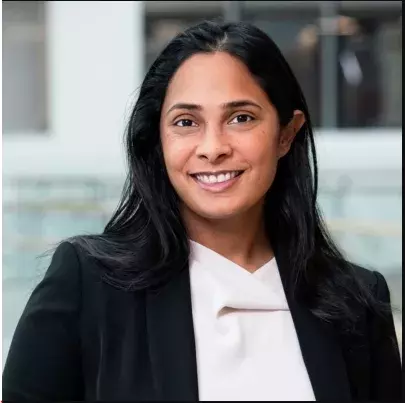
Measuring societal impact in the here and now
Why Wait?
As someone who is personally committed to addressing global climate change, Deeksha Gupta says she’s been heartened by the dramatic increase in socially responsible “impact” investing over the past decade or so.
“But while the current focus among academics and industry leaders has been on how socially responsible investors can generate impact, that largely misses the crucial aspect of how quickly that impact can be achieved,” notes Gupta, who holds a PhD from the Wharton School and joined Johns Hopkins Carey Business School as an assistant professor in 2022.
Among socially responsible investors, Gupta notes, “much of the focus has been on showing impact after the investor makes the purchase, with the acquired firm then becoming greener or cutting carbon emissions — but that can lead to significant delays in enacting these reforms.” With the world facing potentially catastrophic consequences unless greenhouse gas emissions are reduced quickly, says Gupta, time is of the essence and avoiding such delays should be a key focus.
But as Gupta’s new research demonstrates, that could require a “sea change” in the way impact investors and the firms they are acquiring are incentivized, and in how impact is measured. Her working paper examines the pace of change involving socially responsible investing in private capital markets — markets that account for a significant share of impact investing.
“Our paper, which uses a dynamic search model, highlights the unintended consequences of active investment strategies aimed at generating impact since these strategies can disincentivize current firm owners from reforming their ‘dirty’ practices proactively,” says Gupta. “In fact, there is a perverse incentive for current owners not to enact reforms, because if they become ‘too green’ then they will no longer be acquisition targets for impact investors.”
The researchers’ findings also have implications for the political economy of climate regulation, Gupta says. “For owners of ‘dirty firms,’ the anticipation of future trading gains can lead them to lobby against regulations that force them to reform proactively — even if they are committed to green practices.”
Avoiding delays
A key solution to avoid delays in green reform is for potential investors to revisit the way impact is measured, Gupta and colleagues conclude. If the overall goal is to enact green reforms quickly, then why not make it profitable for existing firms to begin adopting sustainable practices before they are acquired?
With this approach, explains Gupta, the socially conscious investor avoids delays by paying a premium up front. “The investor says, ‘I will acquire your company and you will get a better price if you can show me first that you have started to reduce emissions or install green technology.’”
For this strategy to work, Gupta notes, the current owner must have enough funding to undertake initial abatement or improvement efforts without the need for capital from investors. “But even if the firm can make a start, then the investor will reward them with a better price and can jump in to advancing the initial sustainability efforts after purchase,” she says.
Rethinking “fiduciary duty”
Implementing this approach will require a significant shift related to “fiduciary duty concerns” on the part of investors, Gupta concedes. Fiduciary duty — which requires financial professionals to work in the best interest of their clients or investors —traditionally has meant that investors do everything possible to maximize financial returns.
But when environmental sustainability comes into play, says Gupta, it’s becoming increasingly clear that a broader definition should be applied: “Fiduciary duty needs to be conceived as maximizing overall value — both financially and through advancing sustainability.”
What to Read Next

business of health
Making online physician reviews more effectiveWhat does this mean in practice?
“The acquiring firms need to be willing to sacrifice some level of initial returns for their investors since the firm will be paying more in order to incentivize proactive reform on the part of the ‘dirty’ company they are acquiring,” says Gupta.
The findings of Gupta and her colleagues—Alexandr Kopytov of the University of Hong Kong and Jan Starmans of the Stockholm School of Economics—also have implications for the design of compensation for the managers of socially responsible funds.
If the goal is to speed up the implementation of sustainable technology, then when designing compensation contracts for fund managers, the scholars note, “there may be benefit to weakening the relationship between compensation and post-investment impact.”
Gupta and her co-authors are hopeful that the strategies they’ve identified could help speed the adoption of sustainable technologies to address climate change. “We are motivated by the urgency of this issue,” she says. “There really is not time to waste.”


